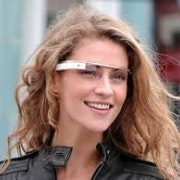Discovering a business case for the Google Glass
Google Glass is a wearable computer with a head-mounted display and camera that incorporates many smartphone-like functions in a hands-free format that can interact with the Internet via natural-language voice commands. The recent shipment of the initial batch of Google Glass to developers along with the publicity surrounding the Google I/O developer conference has ignited controversy in the press, blogosphere, and halls of government. Luddites are outshouting the technology enthusiasts with dystopian visions of alienation and destruction of privacy. Members of the US Congress have written to Google expressing concerns about the societal implications of Glass. While some of the concerns about privacy, etc. are legitimate, lost in all the Sturm und Drang is a calm evaluation of how businesses and public sector organisations could use Glass-like devices. While early in its development, Glass and its nascent competitors offer intriguing possibilities to improve business efficiency and effectiveness.
It’s all about the use cases
Recently, this analyst witnessed field service technicians struggling to fix a kitchen stove. It took four visits to replace a simple sensor because they had trouble identifying which was the correct replacement part to use. The sensor was small with several connectors, and there were multiple versions of the part with slightly different connectors. Each technician at some point called second-level technical support and laboriously tried to explain over the phone what the sensor looked like. Because the stove was under warranty, whatever profit the manufacturer had made was completely burned by the inability to efficiently fix the problem. If the field service technicians had been able to do a real-time video conference using Google Glass (available today) they could have shown the expert the part from many different angles, identifying the correct replacement accurately and quickly. This would have saved money and dramatically enhanced the customer experience.
This homely example illustrates that a head-mounted device with the ability to do video-conferencing, take pictures, pull up information, and connect via cell phone calls, all hands-free, could have real business value. While Glass-like devices can be general-purpose mobile computers/phones, interesting possibilities arise when the focus is on specific use cases such as:
Field service – With the increasing complexity of consumer and business products, Glass can be used by field service technicians to collaborate with experts, pull up product technical specifications, and obtain step-by-step instructions via augmented reality.
Insurance claims documentation – Claims adjusters (aka loss adjusters) could efficiently capture witness interviews and document property damage with video, photos, and voice notes. This could be especially useful in situations where the damage is extensive, such as natural disasters.
Telemedicine – Nurse practitioners at remote clinics or doing home visits could collaborate with doctors and specialists to improve healthcare at the point of interaction, reducing the need to transport patients to hospitals.
These are but a few of the potential uses for Glass-like devices in business. Other use cases could involve factory workers, manufacturing quality assurance staff, police and fire, technical training, knowledge worker collaboration, and many others.
Google Glass is at the Apple II before VisiCalc stage
At this point in its development, Google Glass is like the Apple II before VisiCalc – considered a hobbyist toy, not a serious business tool. The release of the VisiCalc spreadsheet was a seminal moment because it was the “killer app” that showed that microcomputers could dramatically increase business productivity by putting computing in the hands of average workers. At this point, developers have only recently gotten their hands on Google Glass so there is no predicting what “killer apps” will be generated over the next few years.
As to the criticism that Google Glass is too expensive and underpowered and has poor battery life, a clunky user interface, and incomplete or crude functionality, the answer is “So what?” All new product categories exhibit these characteristics, but Glass and its competitors will follow Moore’s Law to become “better, faster, cheaper.”
Recommendations for enterprises and public sector organisations
Ovum recommends that IT and business professionals ignore the naysayers. Remember that the PC, LAN, Macintosh, cell phone, Internet, iPhone, iPad, and many others were all initially mocked by pundits, expert users of existing products, and Luddites. To paraphrase the German philosopher Arthur Schopenhauer: All disruptive technology passes through three stages. First, it is ridiculed. Second, it is violently opposed. Third, it is accepted as being self-evident. This is not to say that Google Glass itself will be successful. However, the form factor and functionality of Glass-like devices clearly have interesting business and consumer uses that will drive this nascent technology’s market development.
Because Google Glass will likely not be commercially available until 2014, IT and business managers have plenty of time to think about the implications of Glass-like devices for their enterprises or public sector organisations. Ovum recommends that clients consider wearable computers a trend to watch and start identifying potential uses within their organisations. Frankly, the potential uses for this type of product will only be limited by one’s imagination.













